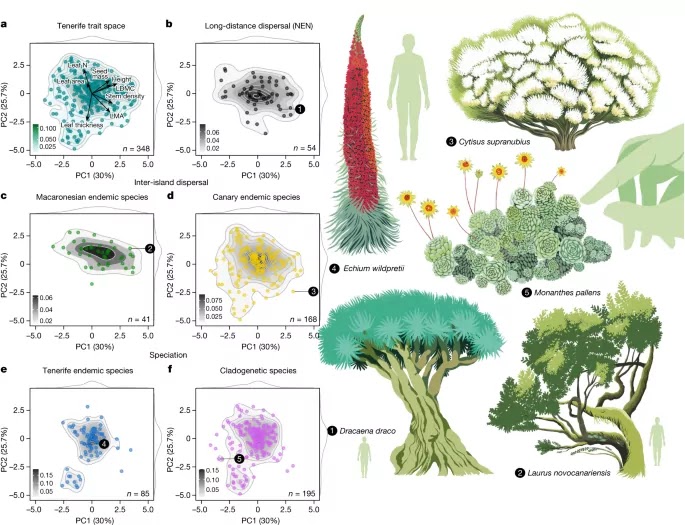Introduction: In recent times, researchers have been delving deeper into understanding how historical colonization impacts the current distribution of plant specimens worldwide. This article will explore some of the latest findings from scientific studies in this field.
Colonization and Plant Specimens: Researchers at Florida State University (FSU) conducted a comprehensive study to investigate how colonization has influenced the worldwide distribution of plant specimens. They examined herbarium collections and historical records to trace the origin of these specimens and map their dispersion patterns. The study revealed compelling insights into the correlation between colonization and plant distribution.
Impact of Colonization on Island and Mainland Plants: One of the significant findings of the FSU research was the disparity between plant distribution on islands and mainland regions. The study indicated that islands that were once colonized had a more diverse range of plant specimens compared to those that were left untouched by colonial activities. The introduction of new plant species through human migration and trade led to the flourishing diversity of plants on these islands.
Also Read:- Ratchet and Clank: Rift Apart PC System Requirements and DirectStorage 1.2 Support
- Diablo 4: World Bosses and Hardcore PvP - A Challenge Awaits!
The Role of Volcanic Islands in Plant Specimen Distribution: Apart from historical colonization, the distribution of plant specimens is also affected by geological factors. A study conducted by the University of Hawaii at Hilo shed light on how volcanic islands play a crucial role in shaping plant diversity. Volcanic islands offer a unique environment for plants to thrive, and their isolation often results in the evolution of distinct species found nowhere else. Understanding the interplay between colonization and geology helps us gain insights into the intricate web of factors shaping the botanical landscape.
Current Global Patterns of Plant Specimen Distribution: Research published in the journal Nature demonstrated that the influence of historical colonization is still evident in the current distribution of plant specimens. The study analyzed data from herbarium collections worldwide and compared it to historical colonization records. The researchers observed that areas with a higher history of colonization tended to have more plant specimens from diverse regions. This observation suggests a lasting impact of colonization on the spread of plant species across continents.
The Role of Climate in Plant Dispersal: While colonization has played a significant role in shaping plant diversity, climate also exerts a crucial influence on plant dispersal. A study highlighted by EurekAlert! News revealed that specific plant species are more likely to thrive in certain climatic conditions. As global climate patterns continue to shift, it is essential to consider the impact on plant distribution and take measures to conserve vulnerable species.
Conservation Implications: The research on colonization's impact on plant specimens offers valuable insights for conservation efforts. Understanding the historical drivers of plant diversity can aid in predicting the response of different species to changing environments. Conservationists can use this knowledge to prioritize regions with high colonization history and unique geological features for preservation.
Conclusion (Not Required): So, the influence of historical colonization on the worldwide distribution of plant specimens is evident from scientific studies. Colonized islands and regions demonstrate higher plant diversity compared to their untouched counterparts. Additionally, volcanic islands play a crucial role in shaping plant diversity. Climate and geological factors further contribute to the complex patterns of plant dispersal. The findings from these studies have important implications for conservation strategies in a rapidly changing world.
Read More:- The Latest Tech Gadgets: A Review of Top Smartwatches and Gadgets
- Google Play Games for PC Beta Launched in India and 60 Other Countries
That's it for this article.
Thanks for Visiting Us – Mirror7News.com


Post a Comment